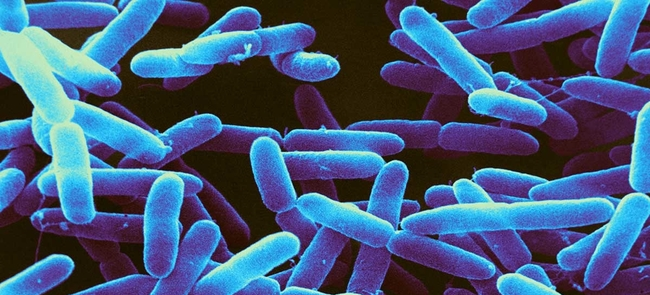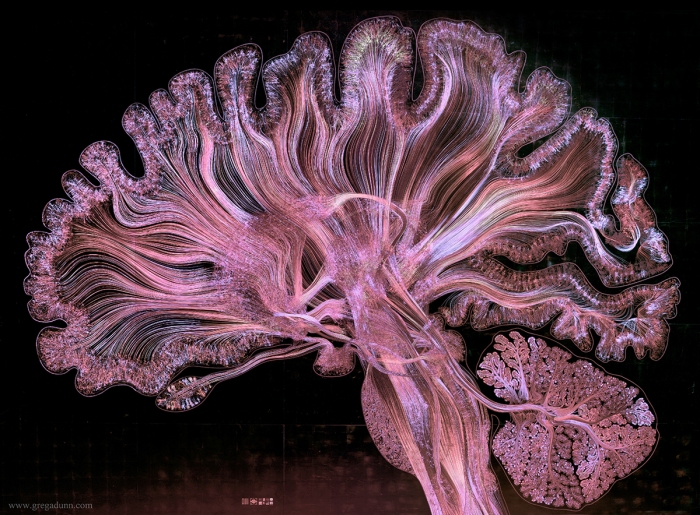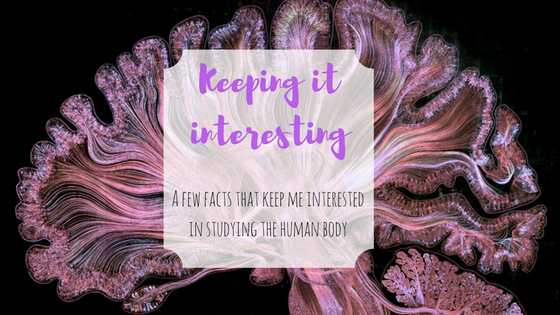It’s the small things: there are as many bacteria in two servings of yoghurt as there are people on Earth. Probably the same for the bacteria in your mouth.

Bacteria are a few micrometers big, that’s a millionth of a meter. There’s a lot of them though, here, there and everywhere; more than a kilo of the things make up our bodies. Plenty species I could mention, each with its own unique characteristics: from the bacteria that give body odour, the “smell” of rain, preventing infection in our own bodies and aiding digestion. Bacteria are the cause of thousands of known and undoubtedly more unknown infections. That has, unfortunately, lead to overuse of antibiotics bringing about the crisis of antibiotic resistance requiring new pharmacological agents quickly. Maybe within the next 10 years things like post-surgical infections, food poisoning, meningitis, STIs, pneumonia, will all be untreatable and could cost huge numbers of lives; they’re pretty common infections which is obviously a problem. So bacteria are rather important.
Bacteria are there every time you touch any surface – shaking someone’s hand will transfer more bacteria than kissing someone, even after cleaning your teeth, there’s probably up to 10,000 bacteria there. It’s a dirty world we live in, but the majority of bacteria won’t do us any harm and those guys in your gut are in loving symbiosis.
Nice to see you: the human eye contains about 200 million working parts, one of the most complex organs in the body.

With tens of thousands of nerves leading to the brain, six muscles to move the eye, the contracting pupil, not to mention the workhorses that are the photoreceptors spread across the retina. The eye is extremely complex, second only to the brain so it’s no surprise that there’s plenty to go wrong; sight impairment, blindness as well as impairments in processing. A structural change in a single molecule of rhodopsin in the rods of the eye can be changed by one single photon, so our eyes are extremely sensitive to light, but signals are only transmitted to the brain after a certain threshold – otherwise, we’d get overwhelmed quite easily.
Seeing 50,000 shades of grey and 10 million colours at the equivalent of 576 megapixels who couldn’t love the eye.
The Human heart will beat about 2.5 billion times in total. That’s a million barrels of blood, 5.6 litres of blood traveling 12,000 miles a day.

For only being the size of your fist, the heart does a lot of work. But then again it’s pretty much all muscle. Blood comes into the heart from the vena cava, making it’s way into the first chamber, the second chamber, out to the lungs, back to the 3rd chamber, 4th chamber then out the aorta. It’s a long way for it to travel, which is why it’s a closed system with thick walls of arteries to cope with the pressure. Valves keep blood flowing forward – heart valves closing make that lub dub we know as a heart beat. Let me also make it clear – electricity cannot start a stopped heart, no matter what your favourite TV show will tell you.
For supplying the trillions of cells in the body with nutrients, well done to the heart.
Drink up! The most unappreciated organ: the liver performs hundreds of functions during the day. Without it, we wouldn’t see tomorrow.

Blood clotting, metabolism, nutrient utilisation, red blood cell maintenance, protein synthesis. There’s a list of about 500 different things the liver does, most of which on a daily basis. It’s pretty well-known the liver can regenerate itself; it’s complex enough for us to know it can’t yet be artificially replaced, hence only living a short time without one. Toxicity is a big thing in the body, the liver detoxifies a lot of the byproducts of everyday metabolism; that would be the likely first culprit of your demise. It’s a clever system the liver has to remove toxins, it has a few different techniques basically involving adding something else to it to make it more removable from the body, like oxygen, sulphur or amino acids. Even breaking down hormones in your body after they’ve done their job is a pretty crucial thing – we all know what we’re like when we’re too hormonal… not good.
The overarching meister: the truly unique and wondrous… The human brain.

Controlling all of these almighty systems is the brain. The powerhouse in charge of it all, bringing everything together into some form of a coherent set of messages everyone understands. Tens of billions of neurons, the cells of the brain, all wired and firing between synapses and regulated by neurotransmitters. Thankfully most of these decisions are made without our knowledge in our subconscious otherwise we’d be pretty overwhelmed, only a few percent of the stuff the brain does is conscious. A few things are pretty helpful to know about the brain – like how naps can help you learn better and improve your memory. Being an introvert like me is also as a result of different wiring in the brain compared to extroverts; but basically blame different sets of neurochemical pathways – one connecting to areas where the physical senses are processed (taste, touch, visual auditory) and the other to remembering, planning and problem-solving. The brain is masterful, deceitful and overly complex – I’m not sure we’ll ever understand it or the more philosophical nature of the brain. What we can aim to understand are the pathways it controls, which is what we do to understand where it all goes wrong in diseases meaning we can find something that’ll fix that pathway, getting it all up and running again. Thus we have my fundamental interest in science; trying to fix something that’s broken, discovering what on earth is happening between these microscopic entities that cause multiple forms of disruption and, for some people, life-altering chaos.
Not that I aim to make this a poster for my amazing interest in pharmacology, but I really wish someone would hire me to do some research…

